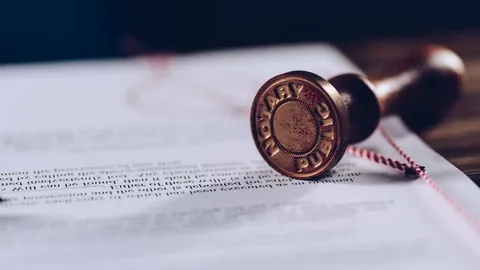When it comes to safeguarding the authenticity of legal agreements, few roles are as crucial as that of a Notary public. Whether you are buying property, finalizing a will, handling power of attorney documents, or conducting a business transaction, notarization ensures that your paperwork carries legal weight and credibility. The practice of notarization has been part of legal systems for centuries, providing an unbiased witness to prevent fraud and guarantee trust. For individuals and businesses alike, working with a trusted provider such as Dallas Best Mobile Notary Services offers convenience and confidence in handling critical documents.
Why Legal Document Verification Matters
Legal documents serve as the backbone of agreements, ownership, and personal wishes. From property deeds to loan agreements, each document has implications that can impact families, businesses, and financial security. Without proper verification, these documents can be challenged in court or deemed invalid. This is where a Notary public provides assurance. By verifying the identity of the signers and ensuring they are signing willingly, notaries prevent disputes and uphold the integrity of the legal process.
The Functions of a Notary public
A Notary public performs several essential duties that go beyond simply stamping a piece of paper. Their core responsibilities include:
- Identity verification – confirming the person signing is who they claim to be.
- Preventing coercion – ensuring signers are acting voluntarily and not under pressure.
- Deterring fraud – safeguarding against forged signatures and fraudulent activity.
- Maintaining impartiality – serving as a neutral witness without personal interest.
These duties not only build trust between parties but also provide additional legal protection in case disputes arise.
Experience and Expertise in Document Handling
The role of a Notary public demands more than basic paperwork skills. Notaries are trained and commissioned by the state, meaning they understand the seriousness of their authority. Their experience ensures they recognize potential red flags, such as incomplete documents, missing pages, or attempts at fraudulent signing. By leveraging years of expertise, they can guide clients on proper signing protocols, ensuring the document will stand up to legal scrutiny.
Common Documents That Require a Notary public
Legal systems and business processes often require notarization to validate agreements. Some of the most common include:
- Real estate deeds and property transfers
- Mortgage and loan agreements
- Wills, trusts, and estate planning documents
- Power of attorney authorizations
- Business contracts and partnership agreements
- Adoption papers and guardianship records
Having these notarized ensures that courts, financial institutions, and government agencies recognize the legitimacy of the paperwork.
The Growing Need for Mobile Notary Services
In today’s fast-paced world, convenience is more important than ever. Mobile notary services have grown in popularity because they allow individuals and businesses to complete notarizations at their preferred location. Rather than visiting an office, the notary comes to you, whether it’s at a workplace, home, or hospital. This flexibility is especially valuable for busy professionals, elderly individuals, or those with urgent legal matters.
The Value of Trust and Impartiality
When dealing with sensitive matters such as property ownership, medical directives, or estate planning, trust is essential. A Notary public must act with complete impartiality, meaning they cannot favor one party over another. Their neutrality fosters confidence and ensures that no side feels disadvantaged. This impartiality is one of the strongest pillars of the notarial system, preventing conflicts of interest and ensuring fairness.
Notarization and Fraud Prevention
Fraudulent activity is a serious concern in today’s digital age. Forged signatures, identity theft, and fraudulent real estate transfers can cause devastating financial losses. A Notary public is a first line of defense against such risks. By requiring signers to present valid identification and appearing in person, notaries make it far more difficult for fraud to occur. Their record-keeping and logs also create an additional layer of accountability should legal disputes emerge.
Ensuring Legal Validity in Business Transactions
Businesses rely on notarization to formalize contracts, protect investments, and secure financial agreements. A Notary public adds credibility to transactions ranging from loan signings to vendor contracts. Courts and banks are more likely to recognize notarized documents as valid, reducing the likelihood of disputes. In many cases, notarization is legally required, making the notary an indispensable part of business operations.
Building Confidence Through Professional Notary Services
For clients, knowing that their documents have been validated by an experienced professional provides peace of mind. With legal stakes often high, notarization ensures that agreements won’t be dismissed due to technicalities or disputes over authenticity. This assurance makes the notarial process a cornerstone of trust in legal and financial systems.
Conclusion
The essential role of a Notary public in legal document verification cannot be overstated. Their work protects against fraud, ensures fairness, and gives legal documents the authority they require. From real estate transactions to estate planning, notarization serves as the safeguard that upholds trust in the legal system. Whether you need verification for personal or business matters, working with a professional notary service ensures that your paperwork is handled with expertise and reliability. Choosing an experienced provider not only saves time but also secures peace of mind in knowing your legal interests are fully protected.
FAQs About Notary public Services
What is the main purpose of a Notary public?
The main purpose is to verify the authenticity of signatures, confirm the identity of signers, and ensure that documents are signed willingly without coercion.
When do I need to use a Notary public?
You need one for documents such as property deeds, wills, loan agreements, and power of attorney forms, as these often require notarization to be legally enforceable.
Can a Notary public give legal advice?
No, a notary cannot provide legal advice. Their role is to witness and verify documents, not to interpret or draft them.
Is mobile notary service reliable?
Yes, mobile services provide the same level of legal authority as traditional offices, with the added benefit of convenience at your chosen location.
How do I prepare for a notary appointment?
Bring a valid government-issued ID, ensure the document is complete (but unsigned), and verify that all parties who need to sign are present.




